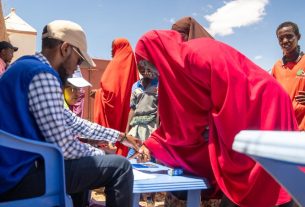A high-level diplomatic meeting took place in Aqaba, Jordan, with top diplomats from the United States, the Arab League, and Turkey convening to discuss Syria’s political future. The gathering, held on December 9, 2024, aimed to establish a framework for Syria’s transition away from the rule of Bashar al-Assad, following the collapse of the Assad regime’s long-standing control. The discussions involved ministers from 12 countries, along with senior officials from the European Union (EU) and the United Nations (UN), underscoring the global and regional stakes in Syria’s future stability.
The Key Objectives of the Meeting
According to Jordan’s Foreign Ministry, the primary objective of the summit was to discuss strategies for supporting a comprehensive, Syrian-led political process that would pave the way for a transitional government. While Syrian officials were notably absent from the meeting, the international community, particularly the U.S., is keen to influence the direction of the transition.
U.S. Secretary of State Antony Blinken, who is currently on a tour of the Middle East, reiterated that there is broad consensus among regional powers on the principles that should guide Syria’s future leadership. These principles include inclusivity, respect for minority and women’s rights, the rejection of terrorism, and the dismantling of Syria’s remaining chemical weapon stockpiles—leftover from the Assad regime’s tenure.
The Role of International Institutions
The United Nations, represented at the meeting by Special Envoy for Syria Geir Pedersen, is expected to play a key role in ensuring that Syria’s transition is both credible and inclusive. Pedersen emphasized the importance of a political process that incorporates all Syrian communities and maintains the integrity of state institutions. In his view, stabilizing Syria requires a combination of international support for governance structures and humanitarian assistance to prevent further collapse.
Pedersen further stressed that the state’s institutional framework must remain functional to avoid complete disintegration. He also highlighted the urgency of providing humanitarian aid to Syrians suffering from prolonged conflict. The international community’s focus is to prevent the emergence of a vacuum that could lead to more violence and instability, exacerbating the humanitarian crisis.
Contextualizing Syria’s Transition in a Broader Regional Framework
The diplomatic discussions in Aqaba occur against the backdrop of ongoing regional instability. The Middle East is currently grappling with the protracted Israel-Hamas conflict in Gaza and the fragile ceasefire between Israel and Hezbollah in Lebanon. The potential collapse of the Assad regime has sparked fresh concerns about the possibility of Syria descending further into chaos, which could destabilize neighboring countries.
The Syrian conflict, which began in 2011, has been marked by complex international interventions, with the Assad regime backed by Russia and Iran, while Western powers, including the U.S., have supported opposition groups. However, the shifting political landscape now calls for a more comprehensive approach to Syria’s future, one that transcends the military and diplomatic rivalries of the past decade.
Challenges and Opportunities Ahead
The collapse of Bashar al-Assad’s government presents both challenges and opportunities. The ongoing conflicts in the region, combined with the Assad regime’s brutal repression of opposition forces, have created deep divisions within Syria. The question of how to unify the diverse Syrian population—comprising ethnic and religious minorities, including Kurds, Sunnis, Alawites, and Christians—remains one of the most significant obstacles to peace.
Despite these challenges, there is a renewed sense of urgency among regional and global powers to pursue a viable political transition in Syria. This transition must be led by Syrians themselves, with the assistance of international organizations like the UN. For many stakeholders, this represents a last opportunity to chart a course that could ultimately restore stability to Syria and the wider region.
Conclusion
The diplomatic meeting in Aqaba signifies a crucial step in the broader effort to reshape Syria’s political future. While the path ahead remains fraught with challenges, including the integration of diverse Syrian communities and the preservation of state institutions, there is an emerging consensus on the importance of a political solution. With support from the international community, particularly the UN, Syria’s transition could provide a glimmer of hope for a nation that has endured over a decade of devastating civil war. However, achieving lasting peace will require sustained effort, cooperation, and a commitment to a political process that is both inclusive and credible.
Image by Gerd Altmann from Pixabay



